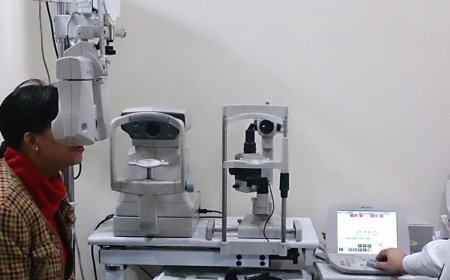What to Know Before Taking Weight Loss Medicine: Myths vs. Facts
Curious about weight loss medicine? Separate myths from facts to ensure a safe and effective weight loss plan with this comprehensive guide.

So, you're thinking about taking weight loss medicine? That’s not surprising. The idea of popping a pill and shedding those extra pounds sounds pretty darn tempting, especially with all the buzz about new diet pills and weight loss supplements. But before you jump into the world of pharmaceuticals, there are a few things you need to know. There’s a lot of misinformation out there, and if you're not careful, you might fall for myths that could not only derail your progress but also put your health at risk.
Let’s get into the myths vs. facts of weight loss medicine and clear up what’s real and what’s pure fantasy.
Myth 1: Weight Loss Medicine Is a Magic Pill
I hate to break it to you, but weight loss medicine isn’t magic. You don’t pop a pill, then wake up the next day with six-pack abs. The myth that these medicines will do all the work for you is as ridiculous as thinking a pizza is a vegetable just because it has tomato sauce.
The Fact: Most weight loss medicines are designed to support weight loss alongside a proper diet and exercise routine. They can help suppress appetite, increase metabolism, or block fat absorption, but they won’t replace the need for healthy habits. Taking weight loss pills without changing your lifestyle is like buying a gym membership and expecting to get fit by just owning the card.
Myth 2: Weight Loss Medicine Works the Same for Everyone
There’s this idea floating around that weight loss medicine will work the same for everyone, kind of like how most people react the same way to a cup of coffee in the morning (read: they become human again). But here’s the thing: bodies are complicated. They don’t all react the same to medicine.
The Fact: Weight loss medicines work differently for different people based on factors like your genetics, metabolism, and even your mental health. For example, some people might see a significant reduction in hunger with appetite suppressants, while others might not notice a difference at all. Don’t expect the same results as your friend, your co-worker, or the Instagram influencer who swears by the latest weight loss pill. And always, I repeat, always talk to your doctor before diving into these kinds of medicines.
Myth 3: Over-the-Counter Weight Loss Medicine Is Safe
“Oh, but it’s over-the-counter! It must be safe!” I’ve heard this one too many times. Just because you can buy something without a prescription doesn’t mean it’s harmless. We’ve all seen those energy drinks that promise “natural energy boosts,” only to find out they’re packed with enough caffeine to power a small city.
The Fact: Some over-the-counter weight loss medicines and supplements can have serious side effects. Just because they’re available at your local pharmacy doesn’t mean they’re safe for everyone. Ingredients like ephedra or high doses of caffeine can cause heart issues, anxiety, and even kidney problems. It’s crucial to research the ingredients and side effects or, better yet, consult a healthcare professional before taking any over-the-counter weight loss medicine.
Myth 4: Prescription Weight Loss Medicine Is Dangerous
On the flip side, some people think that because prescription weight loss medicine is stronger, it must be dangerous. Cue the dramatic Hollywood music. But let’s not confuse the potential for side effects with guaranteed doom.
The Fact: Prescription weight loss medicines are usually well-researched and regulated. Sure, they come with potential side effects (what medicine doesn’t?), but they’re prescribed by doctors for a reason. If your healthcare provider recommends a prescription weight loss medicine, they’ve likely determined that the benefits outweigh the risks for your specific situation. But remember, these medicines aren’t meant for casual weight loss—they’re typically prescribed for people with a high body mass index (BMI) or those facing health issues related to obesity.
Myth 5: You Can Take Weight Loss Medicine Indefinitely
Wouldn’t it be nice if you could take a weight loss medicine forever and just maintain that lean physique without any effort? Unfortunately, that’s not how it works.
The Fact: Most weight loss medicines are not designed to be taken long-term. The goal is to help kickstart weight loss or manage it for a specific period. Prolonged use of weight loss pills can lead to dependency, reduced effectiveness over time, and even health risks like liver damage. You’ll eventually have to rely on sustainable habits like eating well and exercising if you want to maintain your results. Think of the pills as training wheels—you don’t want to ride them forever.
Myth 6: Weight Loss Medicine Can Replace a Healthy Diet
Let’s be real for a second. No medicine, weight loss or otherwise, will ever replace the benefits of a healthy diet. If you think you can continue eating processed junk food while taking weight loss medicine, you’re in for a rude awakening.
The Fact: A balanced diet is essential, regardless of what medicines or supplements you’re taking. Weight loss medicine can help reduce your appetite or block fat absorption, but it won’t cancel out the effects of a poor diet. You still need to nourish your body with whole foods, like vegetables, lean proteins, and healthy fats. Trying to shortcut your way through nutrition is like trying to out-exercise a bad diet—it’s just not going to happen.
Myth 7: Weight Loss Medicine Will Keep the Weight Off Forever
Many people believe that once they’ve shed those extra pounds with the help of weight loss medicine, they’re in the clear forever. They imagine a life of staying fit and fabulous without ever having to worry about weight again. Newsflash: that’s not how it works.
The Fact: Even if weight loss medicine helps you lose weight, maintaining that loss requires ongoing effort. Most people who stop taking their medicine without adopting sustainable lifestyle changes end up gaining the weight back. You’ll need to stick to a long-term plan that includes regular exercise and healthy eating. The medicine might help you get started, but it’s not a permanent solution.
Myth 8: All Weight Loss Medicines Are the Same
It’s easy to lump all weight loss medicines into one category and assume they work the same way. But not all weight loss medicines are created equal.
The Fact: There are different types of weight loss medicines, each designed to address specific aspects of weight loss. Some suppress appetite, others increase metabolism, and some block fat absorption. The best choice for you depends on your body, your health conditions, and your weight loss goals. Again, this is where talking to a healthcare provider becomes critical—they can help you figure out what medicine, if any, is right for you.
Final Thoughts
Taking weight loss medicine can be a helpful tool in your weight loss journey, but it’s not a cure-all. Like anything in life, there are no shortcuts to achieving lasting results. Be informed, be realistic, and most importantly, be kind to yourself. Whether you decide to use weight loss medicine or not, the real key to success is a sustainable, healthy lifestyle that you can stick with for the long haul. There’s no magic pill for that.
And remember, always consult with your healthcare provider before starting any weight loss program or taking any medicine. Your health is worth more than a quick fix.
What's Your Reaction?















![Noots Focus Reviews [Truth Exposed 2025]!](https://news.bangboxonline.com/uploads/images/202501/image_430x256_678e3b94881a1.jpg)
![Vivalis Male Enhancement: The Must-Know Ingredients [2025 Update]](https://news.bangboxonline.com/uploads/images/202501/image_430x256_678e3b54e396c.jpg)










